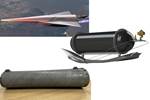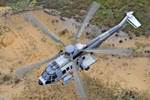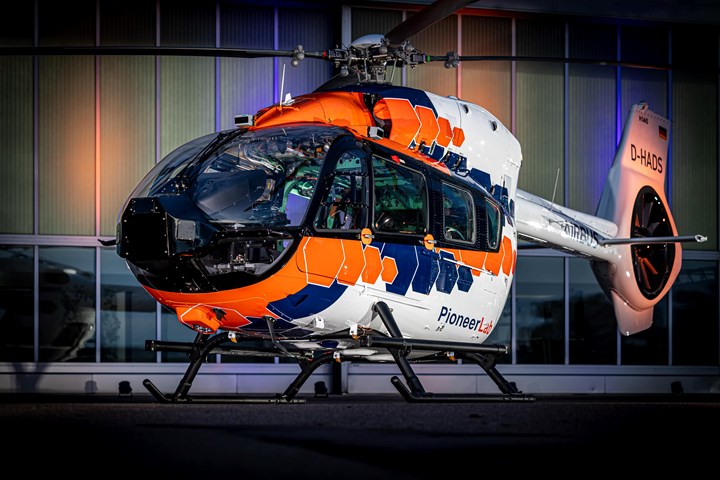Airbus unveils PioneerLab twin-engine flying laboratory
Digital systems, bio-based and recyclable composites and other workstreams specifically dedicated to twin-engines will be tested and matured aboard Airbus’ helicopter demonstrator.
During the German National Aviation Conference in Hamburg, Germany, Airbus Helicopters (Donauwörth) unveiled the PioneerLab, its new twin-engine technology demonstrator based on the H145 helicopter platform. It complements Airbus’ range of FlightLabs and focuses on testing technologies that reduce helicopter emissions, increase autonomy and integrate bio-based materials.
The PioneerLab aims to demonstrate a fuel reduction of up to 30% compared to a conventional H145, thanks to a hybrid-electric propulsion system and aerodynamic improvements. There are different projects that will be tested on board the PioneerLab. In one project, bio-based composites — specifically, a wood fiber with a conventional resin — will be tested; the first composite part produced in this way will be a nose cover. In another project, Airbus will be working with two German research institutes and one university to look at ways of using recycled composites and bio-based materials. In addition to reducing material and energy consumption during production, these projects aim to reduce the environmental footprint across the entire aircraft lifecycle.
Further research activities will include the integration of the latest digital technologies into the aircraft’s flight control system and associated sensors to increase autonomy and safety during critical flight phases such as takeoff and landing.
“With PioneerLab, we continue our ambitious strategy to test and mature new technologies on board our helicopter demonstrators,” says Tomasz Krysinski, head of research and innovation programs at Airbus Helicopters. “PioneerLab, which is based in Germany at our Donauwörth site, will be our platform to test technologies specifically dedicated to twin-engine helicopters.”
PioneerLab is partially co-funded by the BMWK, the Federal German Ministry for Economic Affairs and Climate Actions through its national research program LuFo. Airbus Helicopters’ FlightLabs provide agile and efficient test beds to quickly test technologies. It is part of the company’s strategy to bring incremental innovation to improve its current products and as well as to mature technology for future platforms.
The PioneerLab’s flight campaign has already begun at the manufacturer’s largest German site in Donauwörth, with a rotor strike alerting system being the first techno-brick tested on board the demonstrator. The next phase will be to test an automated takeoff and landing system.
Related Content
-
Plant tour: Teijin Carbon America Inc., Greenwood, S.C., U.S.
In 2018, Teijin broke ground on a facility that is reportedly the largest capacity carbon fiber line currently in existence. The line has been fully functional for nearly two years and has plenty of room for expansion.
-
The lessons behind OceanGate
Carbon fiber composites faced much criticism in the wake of the OceanGate submersible accident. CW’s publisher Jeff Sloan explains that it’s not that simple.
-
Combining multifunctional thermoplastic composites, additive manufacturing for next-gen airframe structures
The DOMMINIO project combines AFP with 3D printed gyroid cores, embedded SHM sensors and smart materials for induction-driven disassembly of parts at end of life.

















